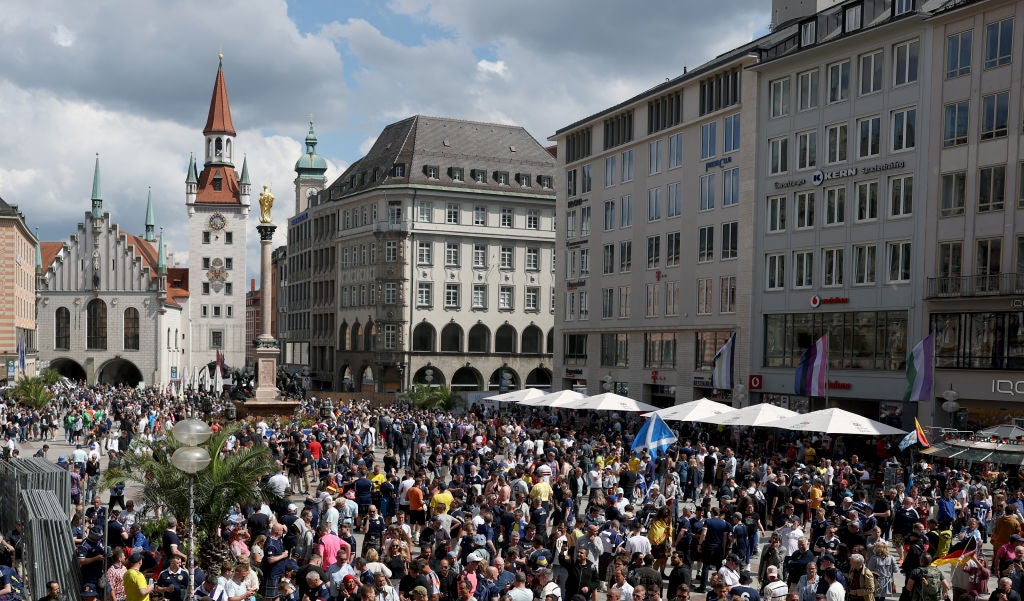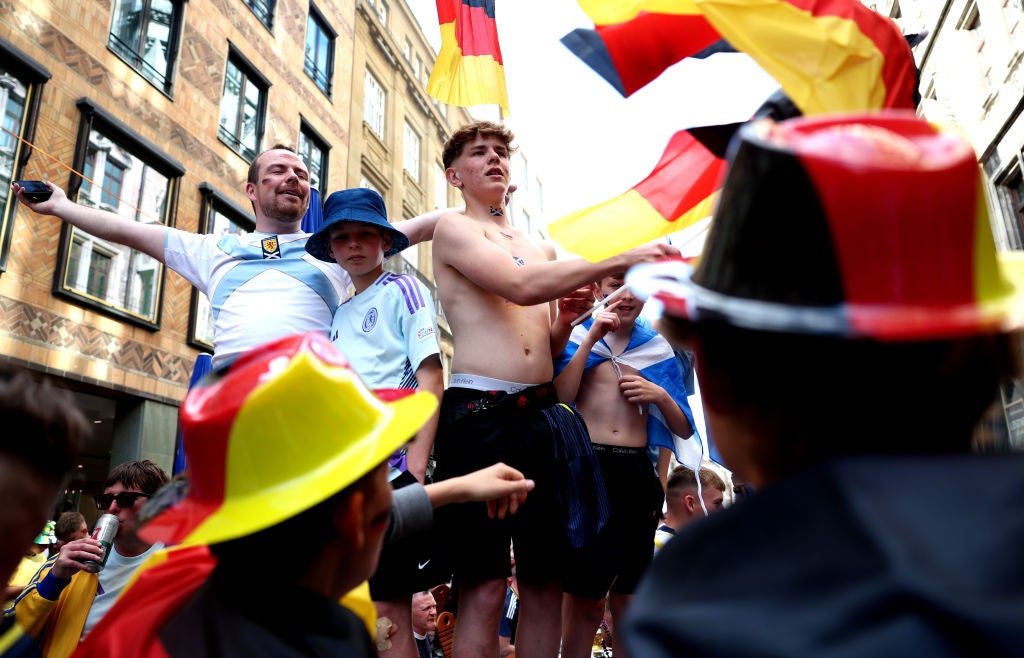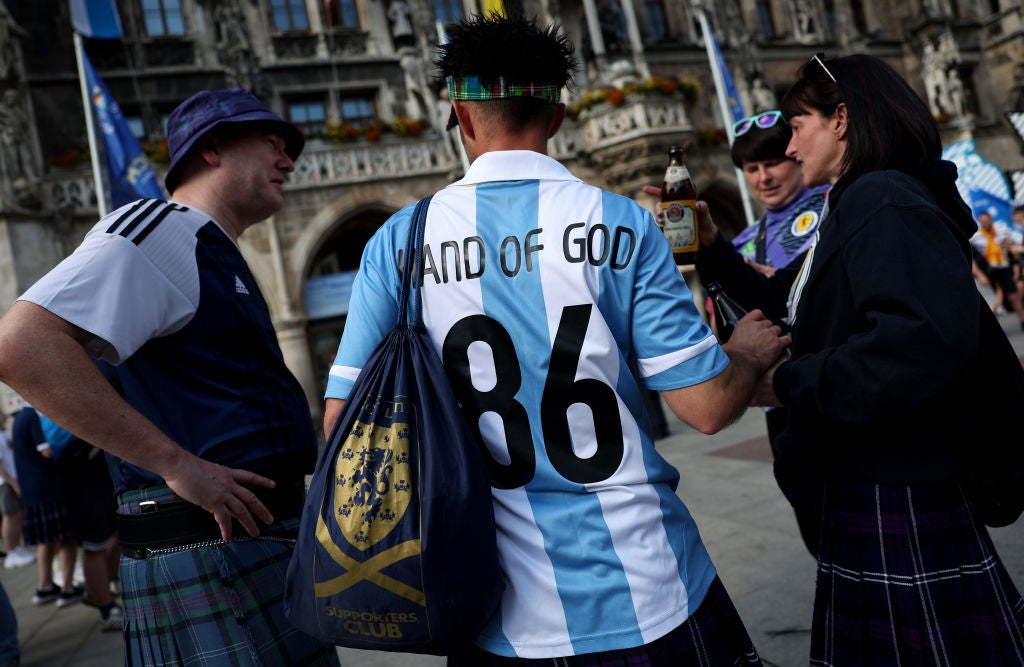This website uses cookies so that we can provide you with the best user experience possible. Cookie information is stored in your browser and performs functions such as recognising you when you return to our website and helping our team to understand which sections of the website you find most interesting and useful.
The first cries of “super John McGinn” could be heard from the concourse of the Marienplatz underground station, filtering down the escalators as if it had the power to pull others out into the sunlight. On the day before Scotland’s opening game against hosts Germany, the Tartan Army arrived in the city square by the early afternoon and in their thousands. “No Scotland, no party” rang around the Marienplatz and by the evidence of the kilts lining the streets of Munich’s Old Town and the steins of beers filling the surrounding outdoor tables, the party had well and truly begun.
Some estimates have put the number of Scotland fans in Munich at as many as 200,000 before the opening game. A first major men’s tournament abroad in 26 years became an unmissable opportunity. Scotland qualified for the last Euros, delayed into 2021, but the two games at Hampden and the trip to Wembley were played with reduced crowds as Europe eased into normality following the pandemic. Covid restrictions weighed over the tournament and Scotland’s return. It was not the major tournament experience many had dreamt of.
Within the Tartan Army in Germany, there are two distinct generations: those who were there or who can remember the 1998 World Cup in France, and those who instead could only grow up with stories of when Scotland were regulars on the big stage. Observing the scene in the Marienplatz stood dad John and son James from Drymen, near Loch Lomond. In 1998, John left a six-month-old James at home with his mother as he set off for France. Now 26 years later, John and James can travel to a major tournament together.
“We said let’s go because I don’t know if I’ll get the opportunity in the future,” John said. “Being able to go with my dad is something special,” James adds. “He has given me some good advice to pace myself.”
Similar stories could be heard up and down the Marienplatz. As Euro 2024 finally arrived, the dreams of Munich turned into a reality and the tales emphasised why an event like this could not be taken for granted.
“When we qualified I realised my age and I thought, we’ll go for it,” says Ally, 51, alongside his 17-year-old son Finlay. “Not to be doom and gloom but my dad died when I was young and I didn’t get the chance to go with him. I can go with my son, we had to go.”



Scott from Stirling has managed to secure tickets for the opening game for him and his son Ewan. “I was at France 98 so it’s been a long time since my last tournament overseas,” he says. “I had the dream of bringing my son to a Euros. It’s been a long time coming.”
For Pete, born in 1998, growing up with his dad Mark brought stories of Paris and the Scots playing football with the Brazil fans underneath the Eiffel Tower ahead of the opening game of the World Cup. “The last time, in France, I left him with his mother when he was a baby,” Mark says. “Now here he is with me.”
The Marienplatz was still swarmed until late in the evening - a collection of pipers emerging to play through renditions of Flower of Scotland, in between the chants, of course, in salute of Diego Maradona. This is how major tournaments should be but, until Steve Clarke arrived, Scotland had forgotten what it was like.



 Africana55 Radio
Africana55 Radio 

